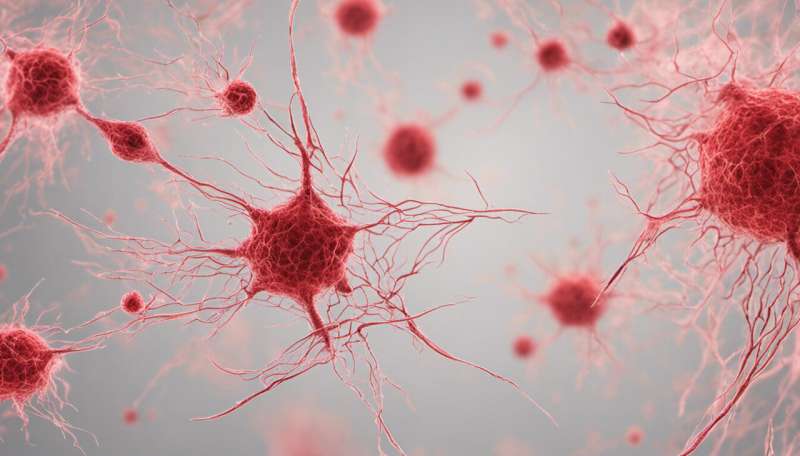Researchers discover how cancer's 'invisibility cloak' works

UBC researchers have discovered how cancer cells become invisible to the body's immune system, a crucial step that allows tumours to metastasize and spread throughout the body.
"The immune system is efficient at identifying and halting the emergence and spread of primary tumours but when metastatic tumours appear, the immune system is no longer able to recognize the cancer cells and stop them," said Wilfred Jefferies, senior author of the study working in the Michael Smith Laboratories and a professor of Medical Genetics and Microbiology and Immunology at UBC.
"We discovered a new mechanism that explains how metastatic tumours can outsmart the immune system and we have begun to reverse this process so tumours are revealed to the immune system once again."
Cancer cells genetically change and evolve over time. Researchers discovered that as they evolve, they may lose the ability to create a protein known as interleukein-33, or IL-33. When IL-33 disappears in the tumour, the body's immune system has no way of recognizing the cancer cells and they can begin to spread, or metastasize.
The researchers found that the loss of IL-33 occurs in epithelial carcinomas, meaning cancers that begin in tissues that line the surfaces of organs. These cancers include prostate, kidney breast, lung, uterine, cervical, pancreatic, skin and many others.
Working in collaboration with researchers at the Vancouver Prostate Centre, and studying several hundred patients, they found that patients with prostate or renal (kidney) cancers whose tumours have lost IL-33, had more rapid recurrence of their cancer over a five-year period. They will now begin studying whether testing for IL-33 is an effective way to monitor the progression of certain cancers.
"IL-33 could be among the first immune biomarkers for prostate cancer and, in the near future, we are planning to examine this in a larger sample size of patients," said Iryna Saranchova, a PhD student in the department of microbiology and immunology and first author on the study.
Researchers have long tried to use the body's own immune system to fight cancer but only in the last few years have they identified treatments that show potential.
In this study Saranchova, Jefferies and their colleagues at the Michael Smith Laboratories, found that putting IL-33 back into metastatic cancers helped revive the immune system's ability to recognize tumours. Further research will examine whether this could be an effective cancer treatment in humans.
This study was published in the journal Scientific Reports.
More information: Iryna Saranchova et al. Discovery of a Metastatic Immune Escape Mechanism Initiated by the Loss of Expression of the Tumour Biomarker Interleukin-33, Scientific Reports (2016). DOI: 10.1038/srep30555















